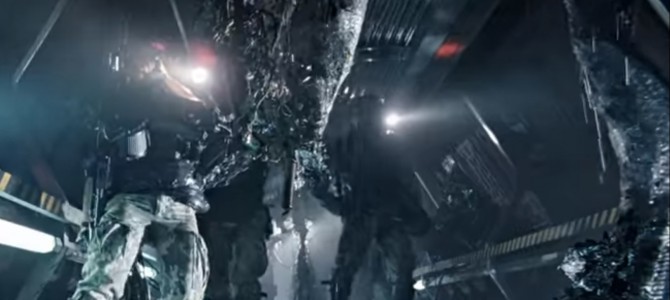In 1979, Ridley Scott perfectly directed and executed the science fiction horror film “Alien.” An unknown director with only one modest film behind him, “The Dual” (starring Harvey Keitel), Scott was hired to direct the film. What followed was cinematic genius.
With singular focus and savant-like imagination, Scott retailored a campy B-movie script into the pinnacle of the science fiction horror genre. Since its release, no movie has come close to evoking the same kind of visceral reaction from audiences the way the horrifyingly graphic chest-bursting scene has. Scott set the bar for the genre, and it remains untouched.
So when James Cameron’s “Aliens” released in 1986, audiences hoped it would be equally impressive and worthy of its namesake. What Cameron gave audiences instead was a pastiche of fast-paced action sequences, impressively armed Marines, massive explosions, waves of assailing xenomorphs, and the requisite anti-corporate subtext thrown in for good measure.
It was entertaining, but it had none of the hair-raising, terrorizing suspense of the original. But why should it? It wasn’t a science fiction horror film. It was a war movie.
‘Aliens’ Is Not A Sequel
Cameron’s decision to disregard almost entirely what made the original “Alien” outstanding shouldn’t surprise anyone. He’s a filmmaker and, as such, leaving his creative and ideological DNA all over a project is part of the job. Cameron even said he wasn’t making a sequel to the original; he was making his own picture starring a version of Scott’s alien.
His adulteration of Scott’s masterpiece was inexcusable. It so fundamentally changed the nature and character of the alien that what remained bore only a faint resemblance to the original hostile organism the character Ash admired.
Nowhere is this transgression more evident than in the biological and behavioral differences between the solitary, predatory instinct of the original creature, and the collectivist actions of Cameron’s creation. In the second film, the aliens act as a combative warrior group, under the command of a queen with a unified purpose. They cooperatively collect hosts for future aliens, or kill anything they perceive as a threat to their own existence. Cameron even gave them an element of intelligence such that they knew how to cut off the electricity, something I, with human intelligence, probably couldn’t figure out.
Cameron changed the biology of the alien, and reoriented the power differential between man and monster. In the original movie, it was suggested the alien was a created organism—likely for the purpose of the expedient planetary eradication of other species. It had acid for blood, an ingenious deterrent against killing it. Remember how it dispatched six of seven crewmembers within 24 hours. It was a highly adaptable creature whose instinctive hostility not only made collectivist survival unnecessary but almost impossible. The alien was an amoral entity, purely hostile to every living thing, including its own kind.
These Aliens Act More Like an Army
Cameron’s alien was more like an insect; it was organizational with an understood hierarchy of needs. The aliens acted together for the benefit of the queen and by extension the species. The sole objective was to provide the queen with hosts for impregnation to propagate the alien race.
Hosts didn’t come willingly, so aliens had to work in teams, using strategy to capture hosts or kill off threats. Cameron conceptualized the aliens as living in hives and communicating primarily through bioelectric emissions and ultrasound, and secondarily through thermal or olfactory receptors. Attributes such as intelligence and sensational communication allowed Cameron to portray the aliens as de facto soldiers in the queen’s army.
The metamorphoses from Scott’s singularly hostile organism to Cameron’s intelligent, hierarchical warrior arthropod was a necessary function of plot development. If Cameron was to achieve the kind of large-scale, edge-of-your-seat, action-packed cinematic experience he envisioned, the aliens had to be numerous and strategic.
When Cameron organized aliens into squads with enough intelligence and communicative ability to perform military-like maneuvers to battle Marines, the film became a war movie. Maybe an unconventional one, but a war film nonetheless. One could even argue that was Cameron’s intention all along. If you don’t believe me, just look at the trailer.









